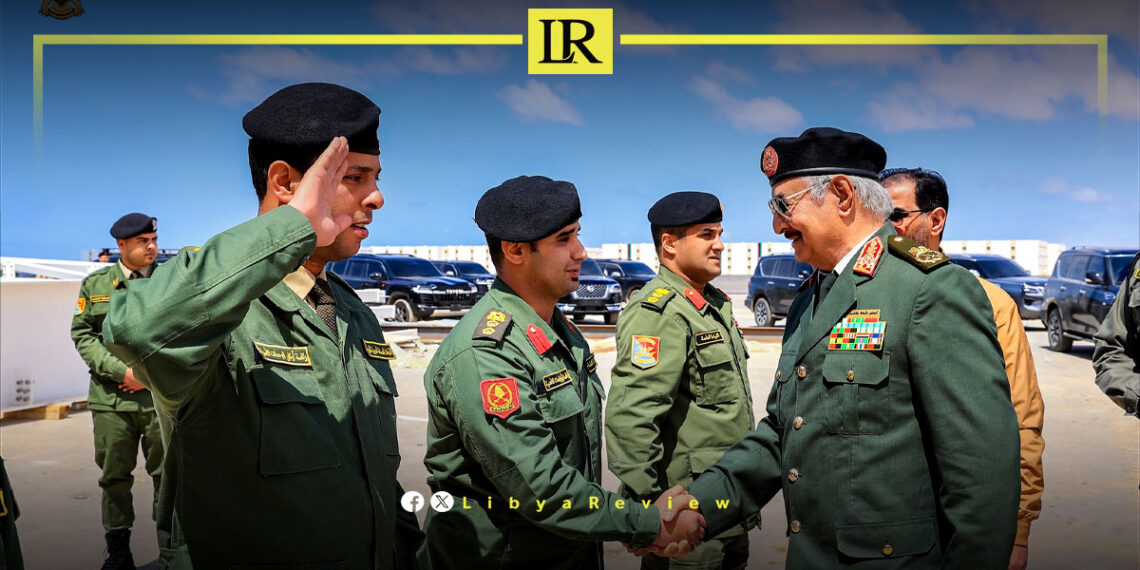Commander-in-Chief of the Libyan National Army (LNA), Field Marshal Khalifa Haftar, has inspected the ongoing construction of a new military city west of Benghazi, a landmark project seen as a strategic boost for the country’s armed forces.
During a field visit, Haftar reviewed the advanced stages of construction, infrastructure development, and administrative facilities, praising the quality and pace of the work. He emphasised that the project adheres to the highest technical and engineering standards.
The Field Marshal was accompanied by Prime Minister of the Libyan Government-designate Osama Hammad and several senior military officials. They were welcomed by the Chief of Staff of the Security Units.
Spanning more than 5,467 hectares, the military city is the largest of its kind in the region. It aims to serve as a fully integrated hub for military training across various weapon systems and security disciplines.
The complex will include a naval port equipped with advanced navigation systems, a military airport, and state-of-the-art training and administrative facilities. The project is being executed under the supervision of the General Staff of the Security Units.
One of the city’s standout features will be a grand mosque, capable of accommodating over 60,000 worshippers across its interior and exterior spaces — reflecting a vision that blends military functionality with religious and social services.
The General Command announced earlier in April that the project is progressing steadily and is expected to become operational in the near future.
Libya has been in chaos since a NATO-backed uprising toppled longtime leader Muammar Gaddafi in 2011. The county has for years been split between rival administrations.
Libya’s economy, heavily reliant on oil, has suffered due to the ongoing conflict. The instability has led to fluctuations in oil production and prices, impacting the global oil market and Libya’s economy.
The conflict has led to a significant humanitarian crisis in Libya, with thousands of people killed, and many more displaced. Migrants and refugees using Libya as a transit point to Europe have also faced dire conditions.
The planned elections for December 2021 were delayed due to disagreements over election laws and the eligibility of certain candidates. This delay has raised concerns about the feasibility of a peaceful political transition.
Despite the ceasefire, security remains a significant concern with sporadic fighting and the presence of mercenaries and foreign fighters. The unification of the military and the removal of foreign forces are crucial challenges.


